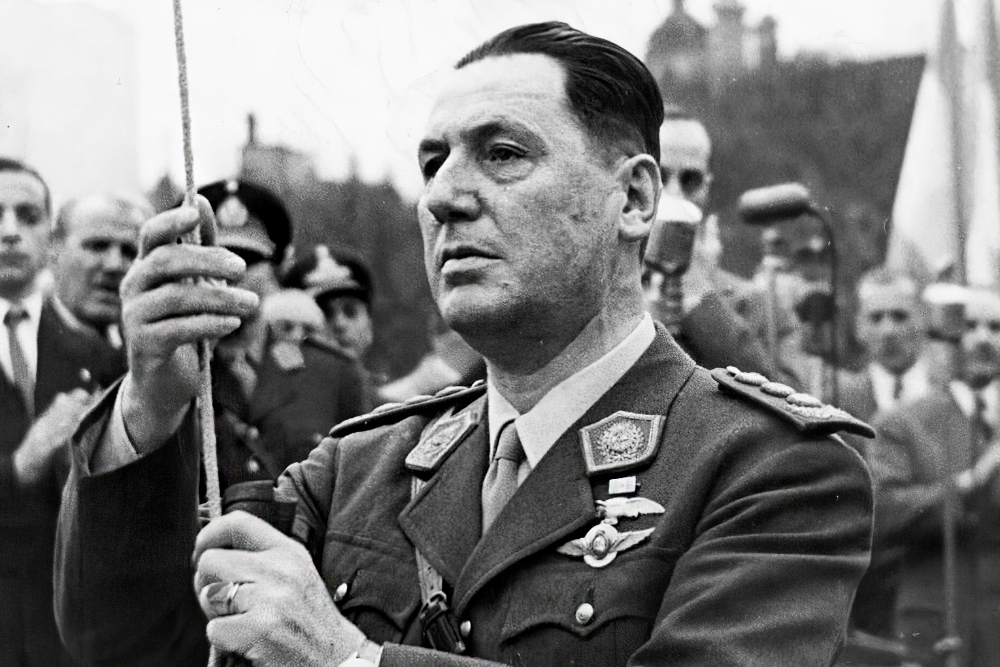On 24 February, 1946, the electoral victory of the populist firebrand Juan Domingo Perón altered the course of Argentina’s history. This political earthquake was made possible in part by an actual earthquake that occurred two years earlier in the city of San Juan.
Perón was serving as labor and welfare minister in the military government that ruled at the time, and he became a national hero for spearheading relief efforts. He was subsequently able to consolidate a powerful base of working-class support by throwing his support behind labor unions and fighting to expand the social safety net. His 1946 triumph offered the first proof of concept for a strain of economic and cultural nationalism that remains potent to this day.
Perón’s success at turning the so-called descamisados — the “shirtless” urban poor — into an overwhelming political force galvanized an alliance of otherwise opposed factions to attempt to block his election. His opponent in 1946, José Tamborini, headed a coalition that included communists and socialists as well as mainstream liberals and conservatives. Those on the left saw him as a fascist (and it’s true that he admired Mussolini), while free-trade liberals deplored his economic nationalism and the conservative elite feared the anti-oligarchic fervor he had whipped up with the help of his increasingly influential wife, the former radio actress Eva Duarte.
Ever since the 2016 US election, commentators have drawn analogies between Perón and Trump, pointing to their personalistic style of leadership and shared rhetoric that pits the people (descamisados/”deplorables”) against the corrupt elite. However, it was not Juan but Eva Perón who likely exerted some influence on the former US president. The latter’s favorite musical is Evita: the story of a show-business natural who transferred her skills to politics, and a social climber who transmuted her resentment of the brahmin class into a contagious populist fury.
Unlike Perón, Trump did not forge a broad or durable working-class coalition capable of delivering him commanding electoral victories. He was also unable and often unwilling to fulfill his more ambitious populist promises. Conversely, both admirers and his detractors see Perón as a transformative leader whose impact was comparable to Franklin D Roosevelt’s in the US. Trump is unlikely to ever be seen this way.
The more meaningful historical parallel, in fact, is between the oppositional forces Perón and Trump summoned up. The anti-Trump “resistance,” like anti-Peronism, was a big tent: it brought together hawkish neoconservatives and barons of the finance and tech industries with Antifa and racial justice activists. Antipathy to Trump also prompted a realignment of affluent majority-white suburbs toward the Democratic Party.
While Perón is often perceived as a dictatorial figure, the real problem his enemies confronted was the electoral potency afforded by his status as the tribune of the masses. As a result, it was his opponents who ultimately resorted to far greater illiberalism. Desperate to keep Peronism out of power, they lined up behind the series of military dictatorships that ruled periodically from Perón’s exile in 1955 up until the 1980s. Since the country’s return to democracy in 1983, 8 out of 11 Argentine presidents have been members of the Justicialist Party, which Perón founded. His historical example reveals that a successful populist agenda might prove nearly undefeatable. On the flipside, such a scenario can lead to the abandonment of democracy on the part of populism’s opponents — ironically, in the name of “defeating fascism.”











Join the discussion
Join like minded readers that support our journalism by becoming a paid subscriber
To join the discussion in the comments, become a paid subscriber.
Join like minded readers that support our journalism, read unlimited articles and enjoy other subscriber-only benefits.
Subscribe